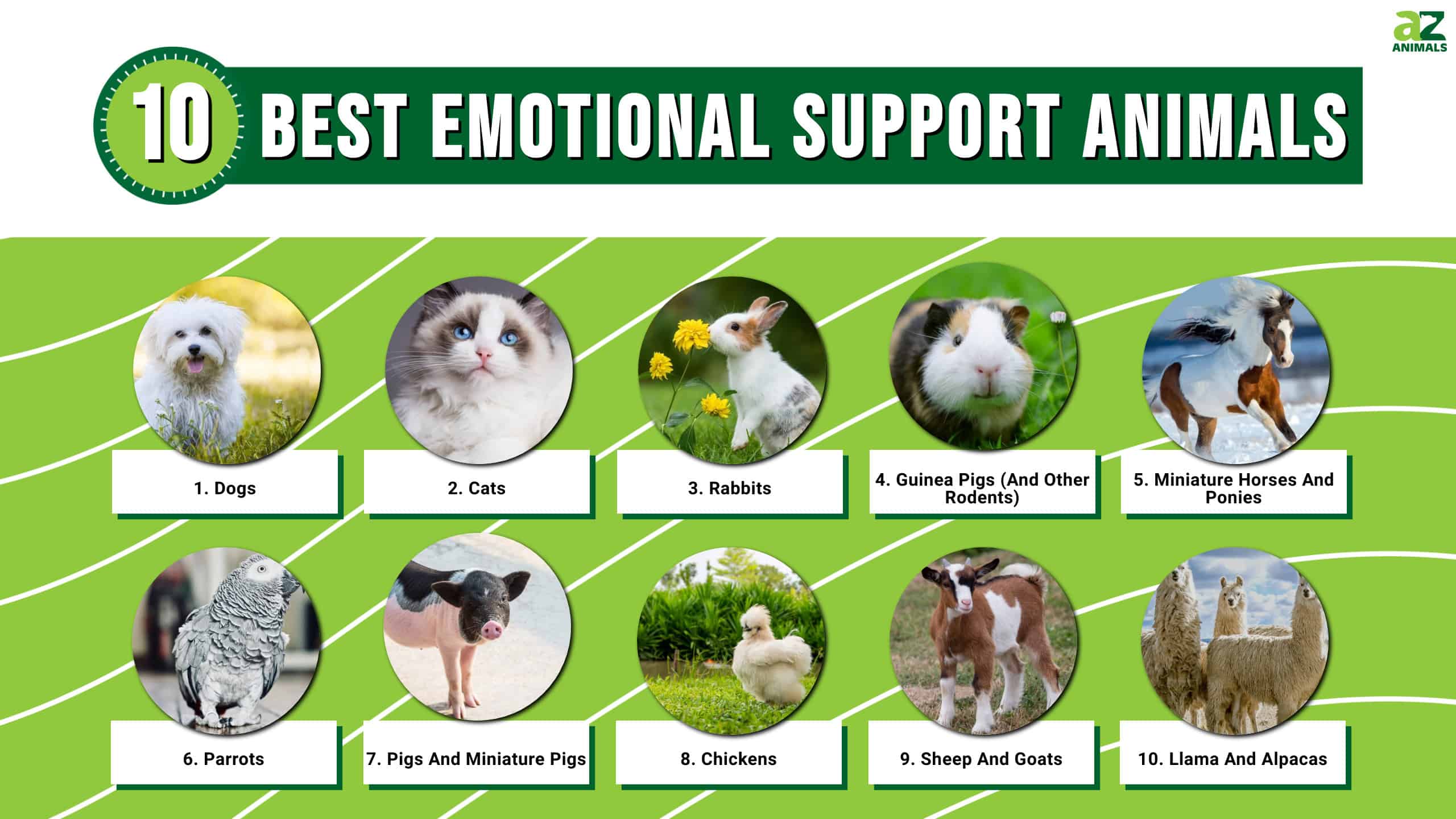
For people suffering from mental health issues, emotional support animals are a great way to provide treatment and coping mechanisms. Sometimes this emotional support is necessary just to help people function normally, especially for anxiety, depression, and for learning disabilities. An emotional support or therapy animal is not quite the same thing as a service animal, which provides physical help to its owner. A therapy animal provides emotional support only.
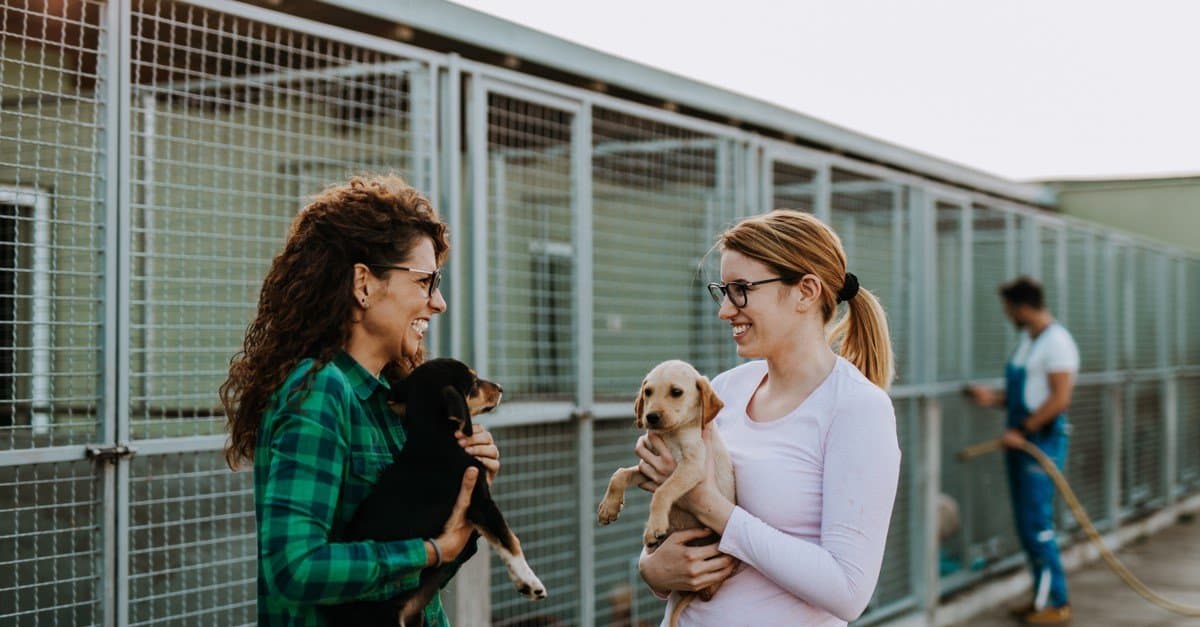
Numerous animal sanctuaries allow you to interact with therapy animals for a very modest fee.
©hedgehog94/Shutterstock.com
In order to have your pet deemed legally admissible as an emotional support animal, it needs to be prescribed by a licensed mental health professional. But you don’t necessarily need to own a pet or a domesticated animal in order to derive some emotional benefit from an animal. Numerous farms and sanctuaries around the world allow you to interact with and touch therapy animals for a very modest fee. Many of these businesses make regular visits to hospitals, schools, and nursing homes to help children, the elderly, or sick people cope with difficult circumstances.
But remember, if you plan to have your pet classified as a therapy animal, you will need to follow all emotional support animal laws in your state or country. While you don’t necessarily need a special license to derive emotional benefits from your pet, therapy animals are subject to certain emotional support animal laws that may allow you to live or travel with them in specific ways. This article will cover some interesting facts about the top 10 types of emotional support animals. The ability to interact with and provide support for emotionally distressed people is obviously the most important criterion for any animal on this list. But for animals kept at home, ease of care is a factor as well.
#10: Llamas And Alpacas

©Cezary Wojtkowski/Shutterstock.com
Llamas and alpacas (two domesticated hoofed animals from South America) may not be the most obvious pick for this list, but they actually make for excellent support animals. As long as they’re raised around people, they are naturally gentle, friendly, and empathetic, and their exceptionally soft coat is also a real joy to touch. They obviously need plenty of outdoor space to thrive in, but there are numerous llama and therapy farms around the world that provide an emotional support service. While either animal is capable of easing emotional distress, the alpaca is generally smaller and more approachable. The llama can be intimidating for some people.
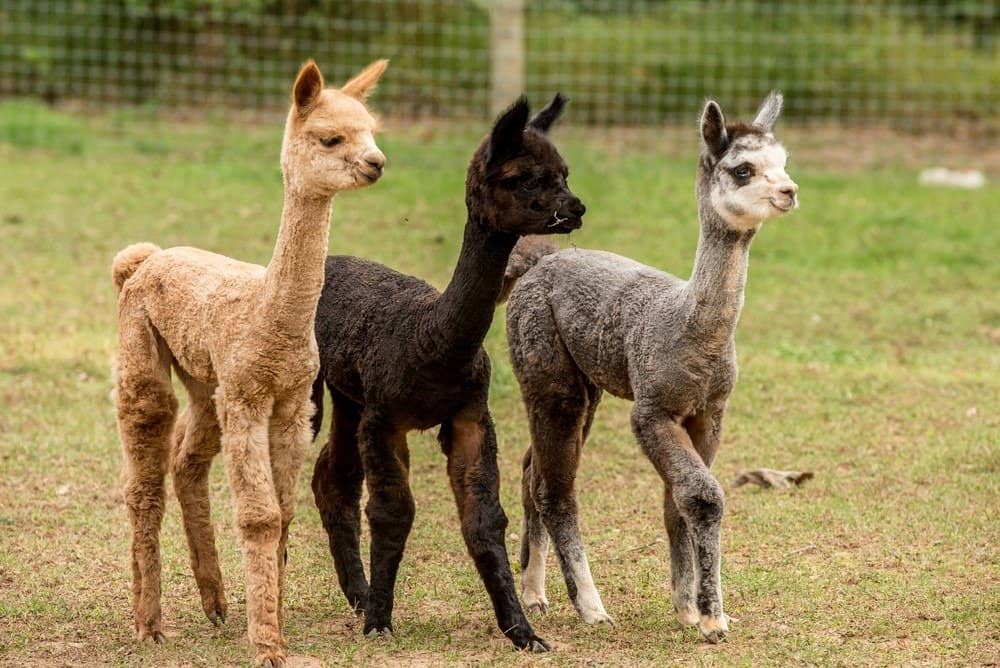
Three young alpacas all different colors
©Karyl Miller/Shutterstock.com
You can read more about llamas here and alpacas here.
#9: Sheep And Goats
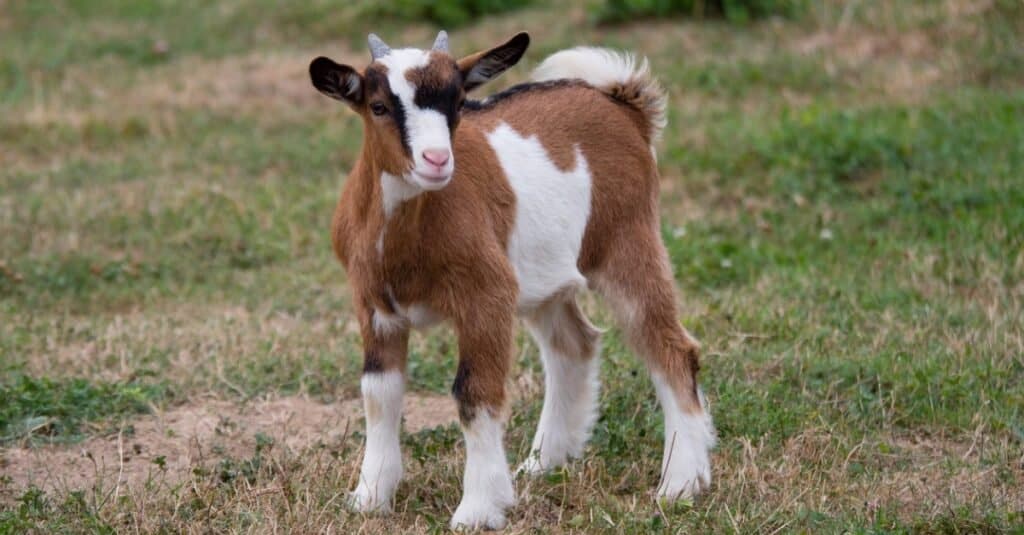
©Andrea Kraus-Wirth/Shutterstock.com
Domestic sheep and goats have many surprising qualities that make them a good choice for therapy animals. First, they are used to being handled by people (the sheep’s soft, wooly coat is especially a joy to touch and pet). Second, they’re surprisingly social and intelligent animals that can be trained to perform different tasks. One of the most surprising facts from research is that they can apparently recognize individual human faces and read emotional states. Third, they’re generally quite calm and gentle around people. They will even eat right out of a person’s hand.
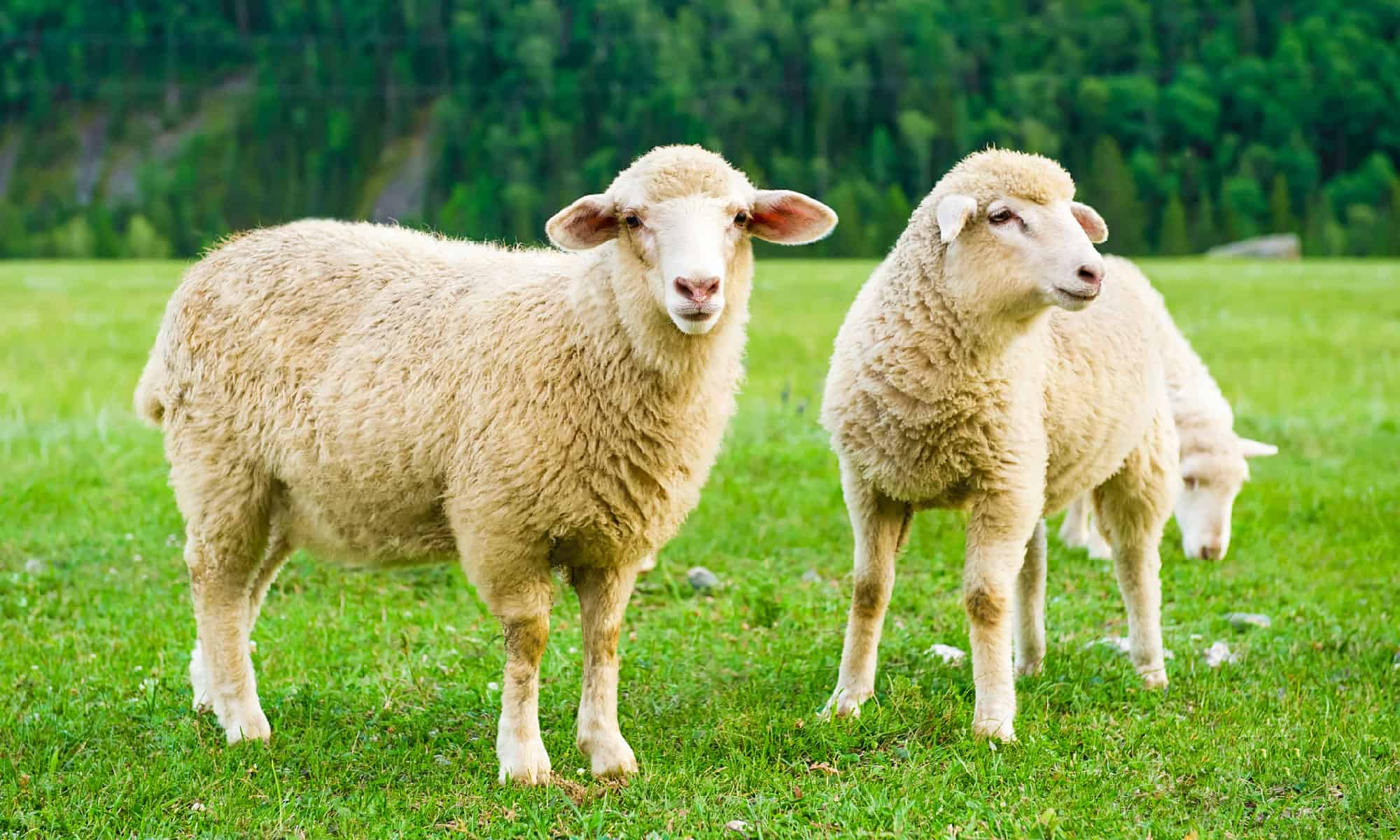
Sheep have a soft, wooly coat that is great to touch.
©iStock.com/idal
Pygmy goats, Nigerian dwarf goats, Nubian dwarf goats, and mini Alpine goats are some of the best goat breeds to interact with. They are known for being naturally curious and inquisitive animals. A Shetland or Cheviot sheep works great as well. However, because of the difficulty associated with caring for this animal, goats, and sheep don’t really make good pets unless you have a lot of outdoor space and plenty of patience. They can be quite destructive with property and require large amounts of food. They also require regular interactions with other members of the species to be content and happy. But they are very good animals to interact with at a farm or sanctuary that specializes in emotional support. Some local businesses even offer yoga programs in which you can relax and stretch with goats.
You can read more about sheep here and goats here.
#8: Chickens
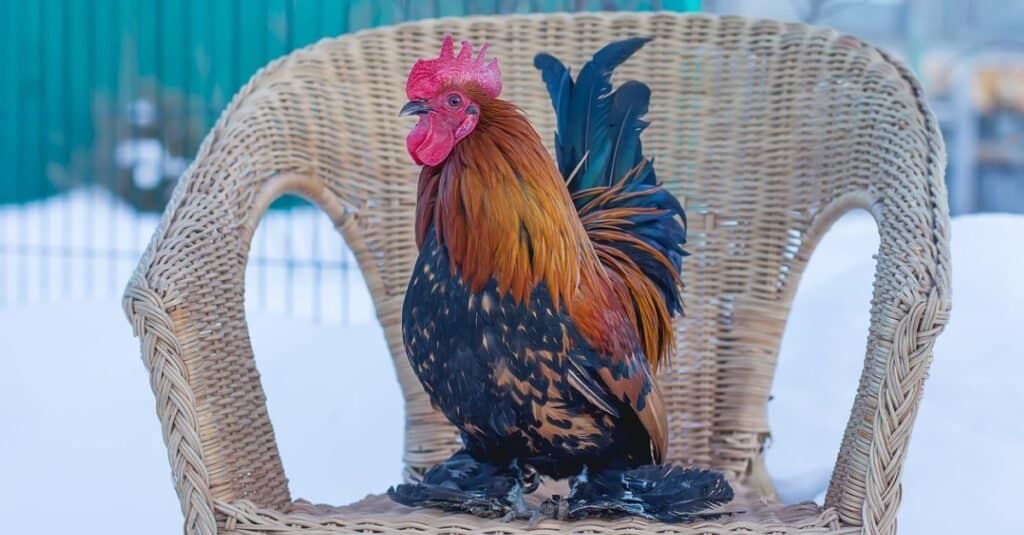
©iStock.com/Andrey Babeshkin
Chickens may not seem like the most obvious choice for an emotional support animal, but as long as they’re trained and socialized from an early age to accept human contact, there are many great qualities about them. They’re quite affectionate toward people, they have individual personalities, and they can even be trained to perform tricks. If you have enough space for them to roam around in, they’re fairly low-maintenance pets that get along well on their own without much human care. Otherwise, if you don’t own chickens, you would have to visit a farm to get emotional benefits from this animal. Some of the most social chicken breeds include silkies, Cochins, barred Plymouth rocks, and Australorps. These breeds are generally calm, friendly, and great for beginners.
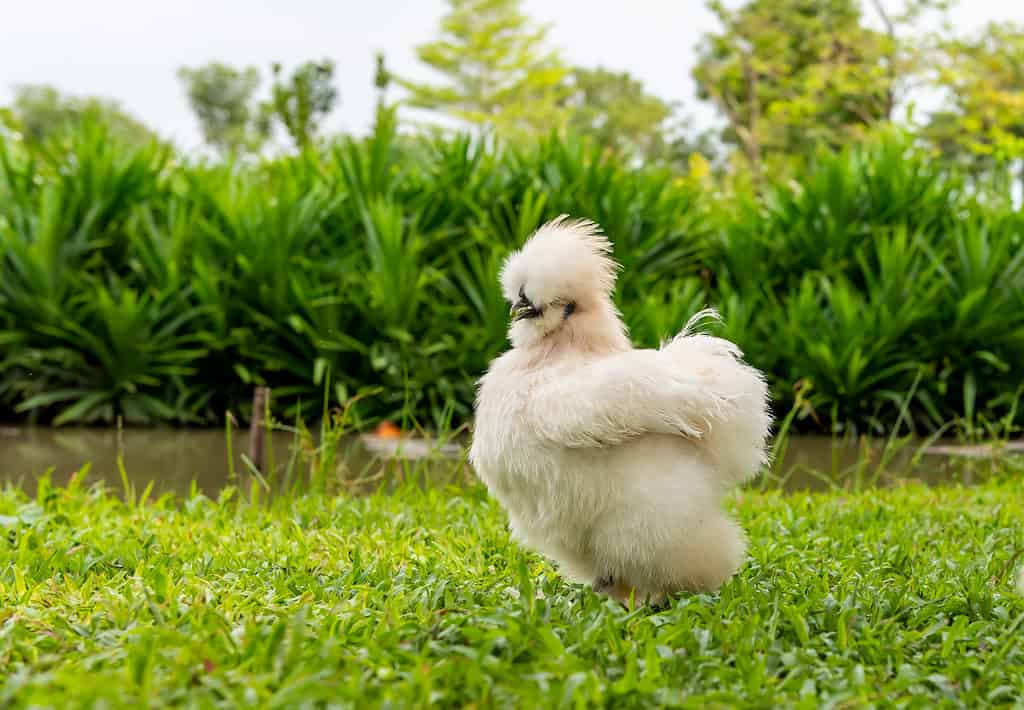
White Silkie Chicken.
©MR. AEKALAK CHIAMCHAROEN/Shutterstock.com
You can read more about chickens here.
#7: Pigs And Miniature Pigs
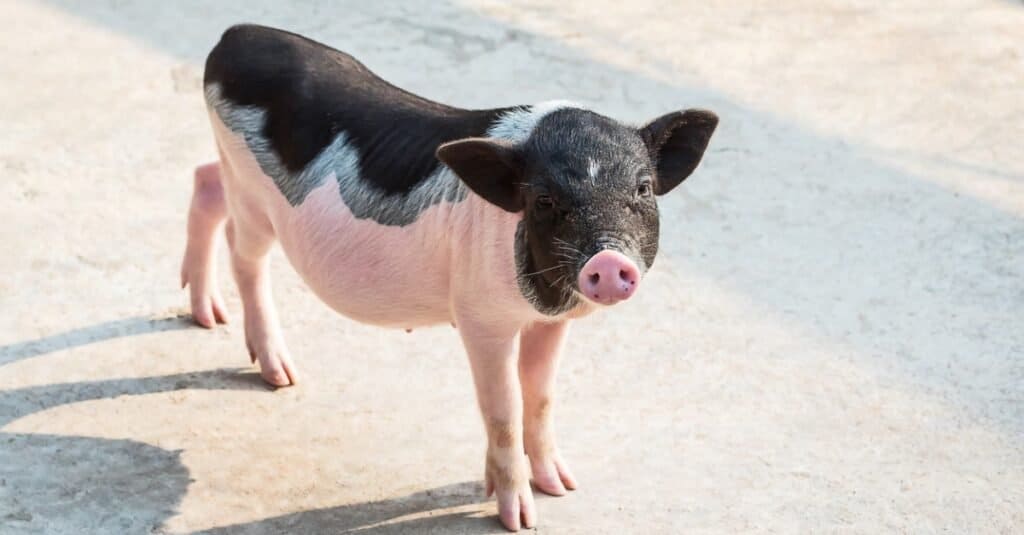
©iStock.com/Appfind
Research shows that pigs are among the most social and intelligent animals on the planet. They crave attention, they form strong bonds with people, and they’re quite hypoallergenic and clean. One of the most amazing facts about them is that pigs have very strong communication skills: barking, squealing, and laughter are all part of their large verbal repertoire. Pigs come in all kinds of shapes, sizes, and colors, but the kunekune, the Vietnamese pot-bellied pig, and some types of miniature pigs make for the best pets and support pigs.
You can read more about pigs here.
#6: Parrots

©Etienne Outram/Shutterstock.com
Clad in all kinds of bright and extravagant colors, parrots are great pets and support animals for people with all kinds of mental health issues. Their ability to mimic human speech makes them a real joy to interact with, and there is some evidence that they can respond to the emotional states of their owners. They are great animals for people with anxiety and for learning disabilities. African grey parrots, budgies, and cockatiels are great choices for novice or casual owners, while macaws and cockatoos might be better for parrot enthusiasts and experts.
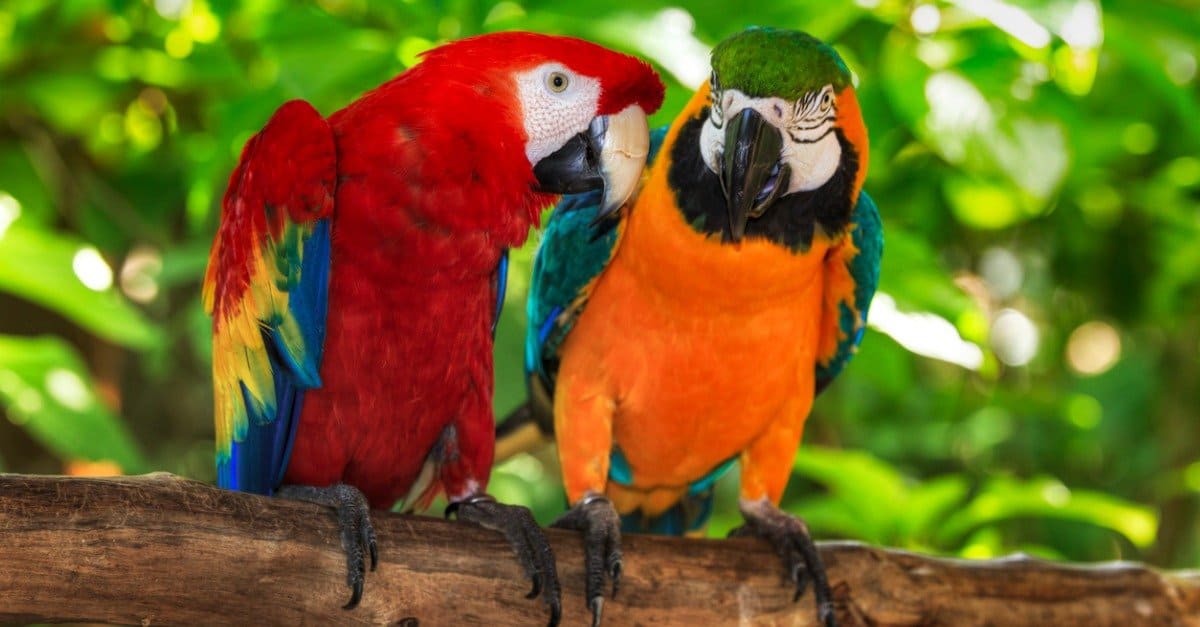
A macaw is an excellent choice of bird for a parrot enthusiast.
©iStock.com/dmodlin01
You can read more about parrots here.
#5: Miniature Horses And Ponies

©Alexia Khruscheva/Shutterstock.com
Both miniature horses and ponies are specifically bred for their small and approachable size, although they do vary in small but subtle ways. The main difference comes down to their proportions: ponies tend to have compact bodies with short legs, thick shoulders, and particularly dense tails, while the miniature horse (which measures less than 38 inches at the shoulders) has similar proportions to a regular-sized horse.
Both miniature horses and ponies are often raised on therapy farms to provide emotional support for learning disabilities, terminal or critical illnesses, and trauma. They are also good at treatment for anxiety and for depression. Their calm demeanor and love for people make them well-suited for being hugged, petted, and otherwise handled.
You can read more about horses here.
#4: Guinea Pigs (And Other Rodents)
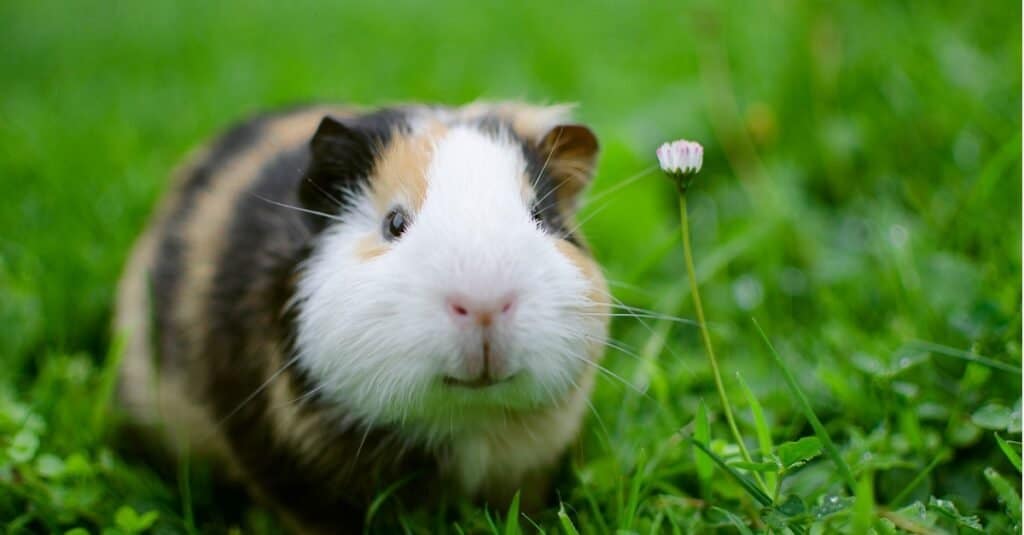
©iStock.com/Galyna0404
Guinea pigs have enjoyed special status as pets, companions, and cultural and religious symbols for thousands of years. Following the fall of the Incan Empire, they became very popular pets in European societies. Guinea pigs have many excellent qualities, including their small size, their gentle behavior, and their high level of interactivity. When overly excited, guinea pigs will do a jumping and twisting maneuver called popcorning. As long as they’re socialized early, they tolerate being picked up and handled without biting or scratching.
Guinea pigs are social creatures who live in large communities in the wild. If you plan to get a guinea pig as an emotional support animal, then it’s recommended that you have at least two of them at the same time to keep each other company. Guinea pigs also don’t need to be together from birth to live in the same enclosure. As long as they are safely introduced, most cavies cohabit without any issues. Other excellent rodent alternatives to guinea pigs include a mouse, hamster, or gerbil.
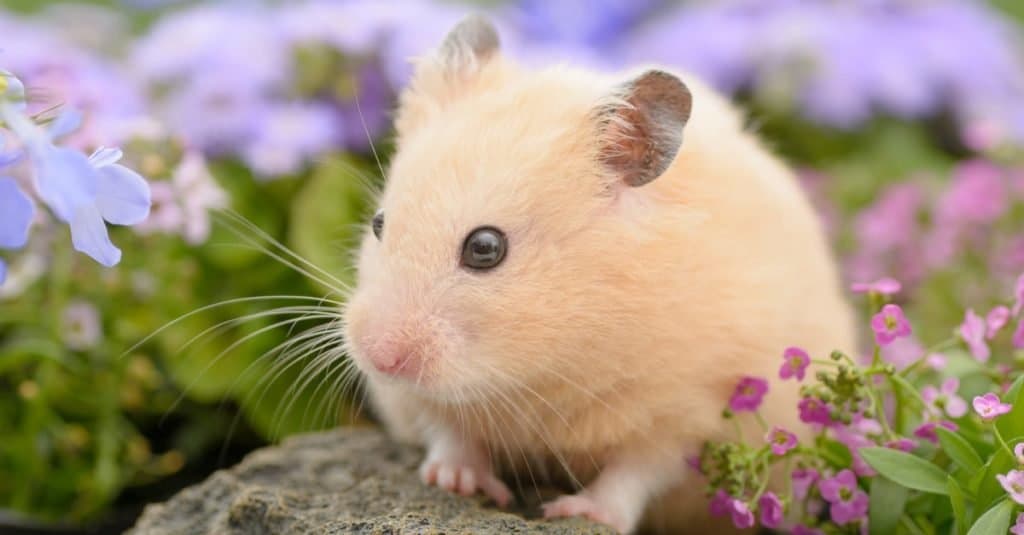
A hamster can be a great alternative to a guinea pig as an emotional support pet.
©stock_shot/Shutterstock.com
You can read more about guinea pigs here.
#3: Rabbits
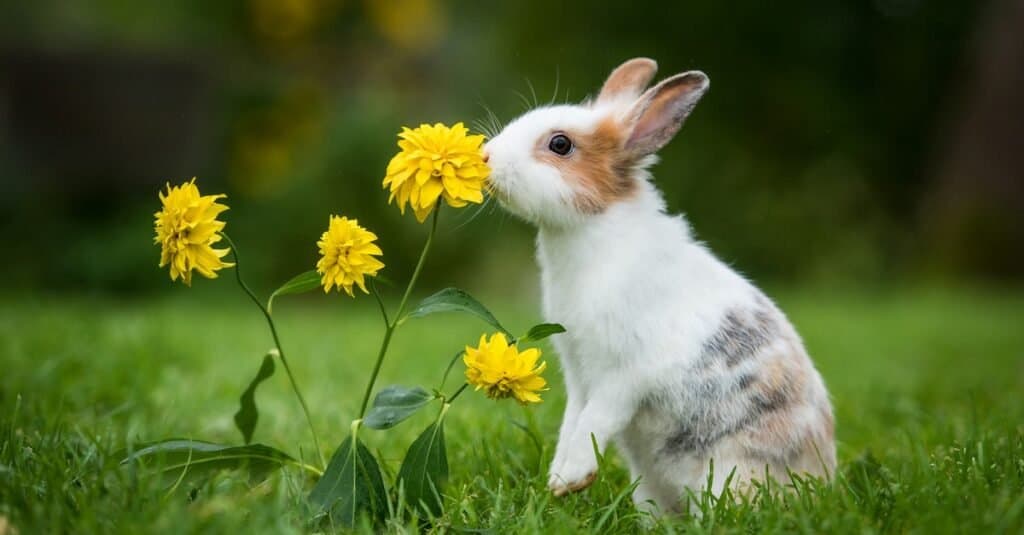
©Rita_Kochmarjova/Shutterstock.com
Cute, cuddly, curious, playful, and very quick to bond with people, domestic rabbits make excellent emotional support animals both for anxiety and depression. They have some of the softest furs of any domesticated animal in the world, and most rabbits are used to being handled or picked up by people. If you don’t want to bother with all the housing and care yourself, then you can still visit a farm or sanctuary to get some emotional support from this animal.
You can read more about rabbits here.
#2: Cats
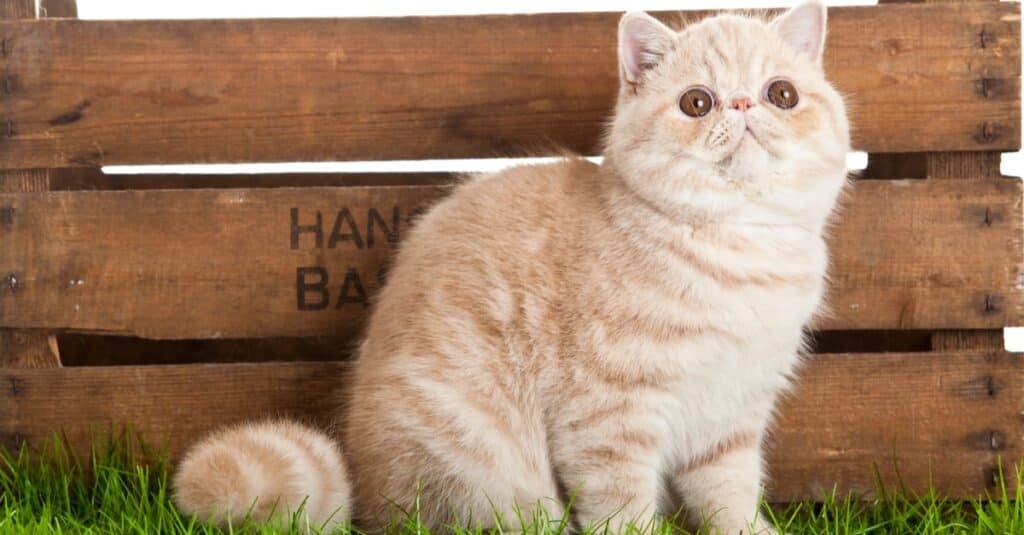
©Ewa Studio/Shutterstock.com
Pet owners can already attest to the fact that a cat can be a calm and soothing presence, especially for people suffering from loneliness and anxiety. Whether curled up and purring on your lap or playing with a toy, they are loving, compassionate, and endlessly surprising pets, relatively easy to care for around the home. They should also qualify easily for a license under emotional support animal laws. Some of the best types of cat breeds for emotional support include the Sphynx, Russian Blue, Abyssinian, Manx, Siamese, Bengal, American Bobtail, and Exotic Shorthair. Allergy sufferers should choose a hypoallergenic breed that won’t trigger their allergies.
You can read more about cats here.
#1: Dogs
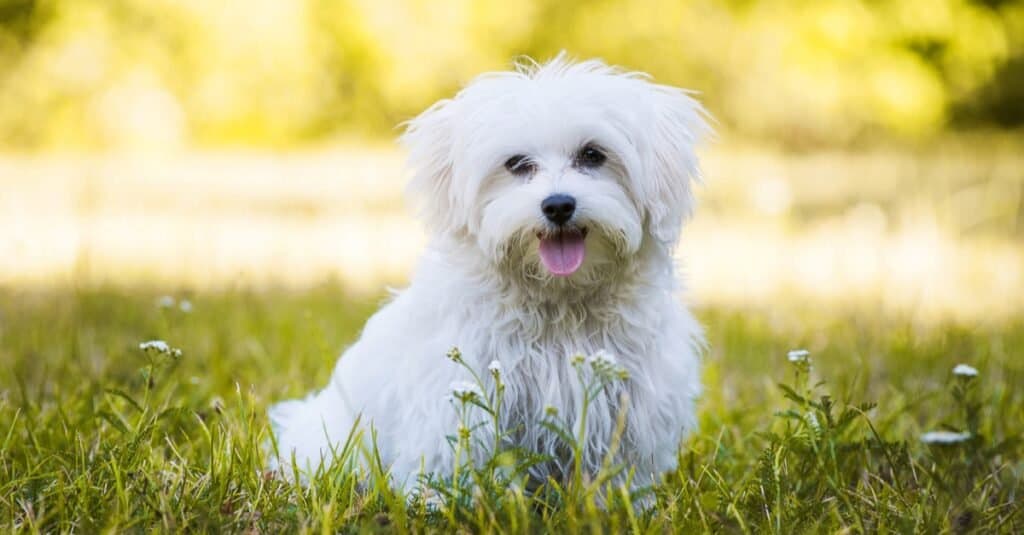
©Dora Zett/Shutterstock.com
As man’s best friend, dogs make ideal support animals for all kinds of obvious reasons. Friendly and trainable, they have evolved to read human emotions and respond accordingly to our needs and desires. Some types of dog breeds are better emotional support animals than others. Golden Retrievers, Labrador Retrievers, Corgis, Poodles, Maltese, Havanese, Great Danes, and the Cavalier King Charles Spaniel all rank highly for their natural affection toward people, whether familiar faces or strangers. However, most dog breeds could conceivably work as emotional support animals as long as you’re bonded strong enough with it. If you suffer from allergies, then it’s a good idea to choose from one of the hypoallergenic dog breeds.
You can read more about dog breeds here.
Honorable Mentions: Fish Make Great Emotional Support Animals
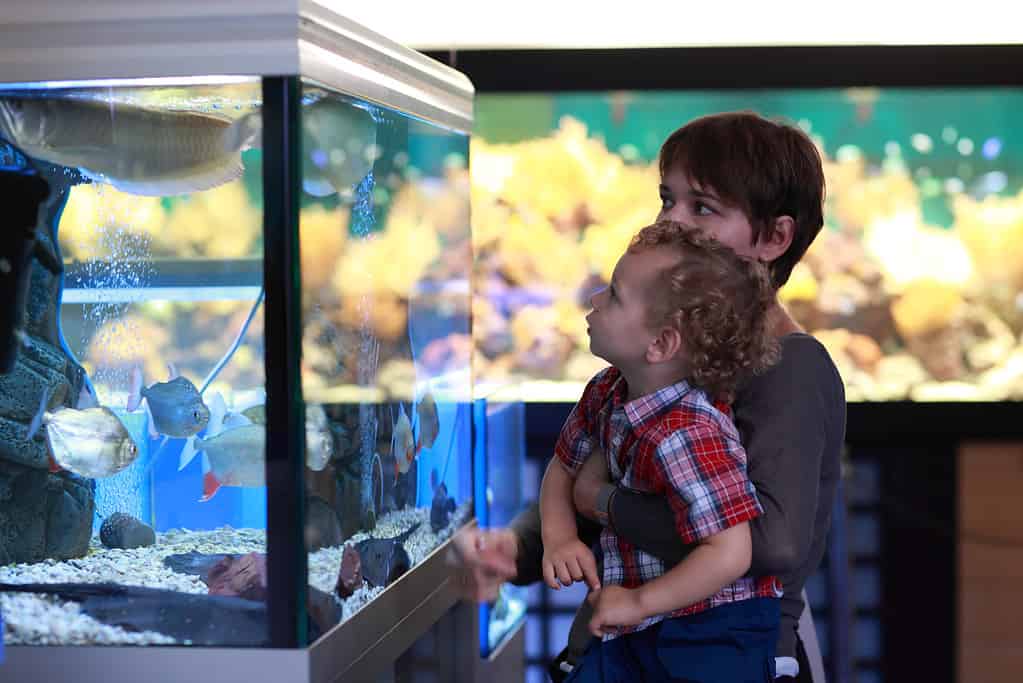
Observing fish in aquariums can help to lower blood pressure, alleviate stress, and even help people suffering from behavior disorders.
©Radist/iStock via Getty Images
There’s no denying that it’s enjoyable to watch fish swimming about in an aquarium or an outdoor pond. But you may not have thought about the reasons behind it. One is that watching fish is relaxing, is a stress reducer, and can even help to alleviate anxiety.
This may explain why fish tanks are common installments in places where people wait, whether it be the entrance to a restaurant or a doctor’s office. Fish are calming to observe, and a great “anti-venom” to impatience.
Studies have revealed that putting aquariums in dining rooms of facilities where Alzheimer’s patients are cared for actually increases their appetites and cuts back on disruptive behaviors. Fish therapy also works well with children who suffer from behavior disorders.
If you have anxiety, stress-related issues, or even high blood pressure, owning your own home aquarium can be a positive consideration. Observing a variety of fish species interact peacefully in a calm environment can do wonders to improve one’s mood while offering relief from negative stressors.
Summary Of The 10 Best Emotional Support Animals
| Rank | Animal | Considerations |
|---|---|---|
| 1 | Dogs | Most common type of emotional support animal. |
| 2 | Cats | Most cats are independent–good for people who may have to be away. |
| 3 | Rabbits | Usually very gentle and sweet. Can sometimes be litter trained, but not always. |
| 4 | Guinea Pigs | Good for people in apartments/limited yard space. Must have at least two. |
| 5 | Miniature Horses and Ponies | Require a sizable amount of yard space, care, and upkeep. |
| 6 | Parrots | Smart and usually very gentle. Good for people in apartments/limited yard space. |
| 7 | Pigs and Miniature Pigs | Good for people with allergies. Can be high energy. |
| 8 | Chickens | Require a sizable amount of yard space. |
| 9 | Sheep and Goats | Require a sizable amount of yard space, care, and upkeep. |
| 10 | Llamas and Alpacas | Require a sizable amount of yard space, care, and upkeep. Have an average lifespan of 20 years. |
The photo featured at the top of this post is © Lucia Romero/Shutterstock.com
Thank you for reading! Have some feedback for us? Contact the AZ Animals editorial team.







